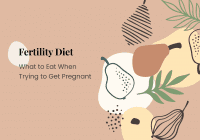Updated November 10, 2021
Since the publishing date of this blog, several organizations have confirmed that the COVID-19 vaccine is safe and recommended for women who are trying to conceive, or who are pregnant, or who are breastfeeding. For instance, the organizations include:
- Provincial Council for Maternal and Child Health
- Ontario Society of Obstetricians & Gynaecologists
- Society of Obstetricians and Gynecologists of Canada
- National Advisory Committee on Immunization
“You can safely get the COVID-19 vaccine before becoming pregnant or in any trimester of pregnancy,” the OHM said in a press release. “The benefits of getting vaccinated to prevent potential complications in pregnancy far outweigh the risks. Not only will the vaccine protect you from COVID-19 infection, it will reduce the risk of severe illness and complications related to COVID-19 infections in pregnancy,” it continued. “Studies suggest the antibodies your body develops following vaccination will pass to your baby, which may keep them safe after birth.”
As well, new data since the publication of this blog post shows that 5% of pregnant women who contract COVID-19 require hospital admission, and 10% of those end up in intensive care units for extended periods. Hospitals must closely monitor pregnant women in ICUs and their fetuses. The data also indicates that COVID-19 increases the likelihood of premature delivery.
Sources:
https://www.ajog.org/article/S0002-9378(21)00187-3/fulltext
https://www.cbc.ca/news/canada/toronto/oma-pregnancy-vaccination-covid-19-1.6231642
https://www.hopkinsmedicine.org/health/conditions-and-diseases/coronavirus/covid-19-vaccines-myth-versus-fact
Is the COVID-19 vaccine safe for pregnancy?
Each pregnancy is unique, with its own highs and lows. Did you escape the usual first trimester morning sickness? That’s a pleasant surprise. Are you struggling with pregnancy insomnia? Many moms-to-be expect that. But facing pregnancy during a global pandemic? That’s an unexpected challenge for parents.
As the one-year mark of the COVID-19 pandemic approaches, parents worldwide have had to adjust their expectations for raising kids and growing their families in an era of social distancing. While many look forward to getting vaccinated, the pressing question remains: is it safe to receive the COVID-19 vaccine while pregnant or planning a pregnancy?
The answer hasn’t always been clear. Given the latest guidelines, Canadians should follow government recommendations when planning their families. Continue reading to have our fertility specialists address your most frequently asked questions about pregnancy and the safety of the COVID-19 vaccine.
How safe is the COVID-19 vaccine during pregnant or breastfeeding?
Biologically, the COVID-19 vaccine appears safe for those who are pregnant or breastfeeding. In January 2021, Ontario’s Ministry of Health updated its policy to allow and recommend that pregnant and breastfeeding women choose to receive the COVID-19 vaccine.
Although initial COVID-19 vaccine trials did not include pregnant and breastfeeding individuals, existing data offers reassurance about the vaccine’s safety. For example, Dr. Upton Allen, Head of the Division of Infectious Diseases at Sick Kids Hospital, noted in our February Instagram Live that women who became pregnant during the study and received the vaccine were fine.
View this post on Instagram
The approved COVID-19 vaccines are mRNA vaccines. They do not contain the live virus. Instead, mRNA vaccines teach our cells how to make a protein that triggers an immune response inside our bodies. Our cells, explains Dr Allen, “are like a peach that has a seed in the middle and an outer fleshy coat. The seed is the nucleus of the cell and that’s where the DNA lives. The outer fleshy part is the cytoplasm and that’s where the mRNA enters and stays and does its thing. It can’t get into the core of the nucleus where the DNA is.” In fact, mRNA only stays in the cytoplasm for a few days and then it’s gone, reassures Dr. Allen.
COVID-19 vaccines are not believed to adversely affect fertility or cause first or second-trimester loss, stillbirth, or congenital anomalies. Additionally, these vaccines do not enter our DNA or alter your or your baby’s genetic makeup.
Why is it suddenly safe for pregnant and breastfeeding people to get vaccinated?
Information about the COVID-19 virus and its vaccines changes rapidly. Initially, pregnant and breastfeeding women were not included in the COVID-19 vaccine trials, which is why Ontario did not recommend the vaccine at that time.
The government has updated its guidelines based on advice from various professional societies, which now advocate for making the COVID-19 vaccine available to pregnant women. New data shows no significant adverse effects among pregnant women who have received the vaccine. However, it remains crucial for individuals to consider their specific risk factors for severe COVID-19 infection and their medical history before making an informed decision.
Therefore, talking to your doctor and reviewing the latest research from trusted and credible sources is essential. Your primary healthcare provider or fertility specialist can guide you in making the best choice for your situation.
Should I skip the COVID-19 vaccine if I plan to get pregnant in 2021?
The short answer is no. If you’re planning to grow your family now or in the near future, you should not skip the COVID-19 vaccine when it becomes available. Research shows that the COVID-19 vaccine does not affect fertility. Getting vaccinated before pregnancy is the best way to protect yourself from the COVID-19 virus, according to Harvard Medical School.
Will pregnant women be forced to take the COVID-19 vaccine?
Pregnant patients always have the right to make informed decisions for themselves and their families. Like any other treatment plan or medical advice, you should consult with your healthcare provider about your medical history and the benefits and risks of the vaccine.
“There is no risk of acquiring infection from the vaccine,” affirms Dr. Tanya Williams. There is also some biological evidence that taking the vaccine in pregnancy may confer some immunity to the fetus, although there have been no specific studies to confirm this. Dr. Williams advises “for now, our best protection is the public health measures that we have all been given and the vaccine.”
Pregnant women at high risk of exposure to COVID-19, such as healthcare workers, or those with underlying illnesses that increase their risk of severe disease, should seriously consider getting vaccinated in consultation with their healthcare provider.
How should pregnant people protect themselves from COVID-19?
Pregnant people can lower their risk of contracting COVID-19 by following public health guidelines and recommendations. Some of these guidelines include:
- Staying home as much as possible, except for important medical appointments, and working from home if possible.
- Talking to your doctor, obstetrician, or fertility specialist about the possibility of telephone or video conference appointments.
- Avoiding visitors to your home, unless for medical purposes.
- Washing your hands often with soap and water for at least 20 seconds or, if not available, use alcohol-based hand sanitizer.
- Practicing social distancing (stay at least two metres from others).
- Avoiding touching your mouth, nose, and eyes.
- Avoiding touching frequently touched surfaces when in public.
- Reducing travel by public transit.
- Avoiding crowded places and peak-hours. Make limited trips to the store for essentials.
Watch our IGTV with Dr. Tanya Williams and Dr. Upton Allen, Head of the Division of Infectious Diseases at Sick Kids Hospital. They discuss whether the COVID vaccine is safe for pregnant women, women trying to conceive, breastfeeding, and more!
Discover more related blogs from Dr. Tanya Williams Fertility Centre:
7 Health Tips to Support Fertility
Gender Bias in Medical Research: The Missing Other Half of Medicine






